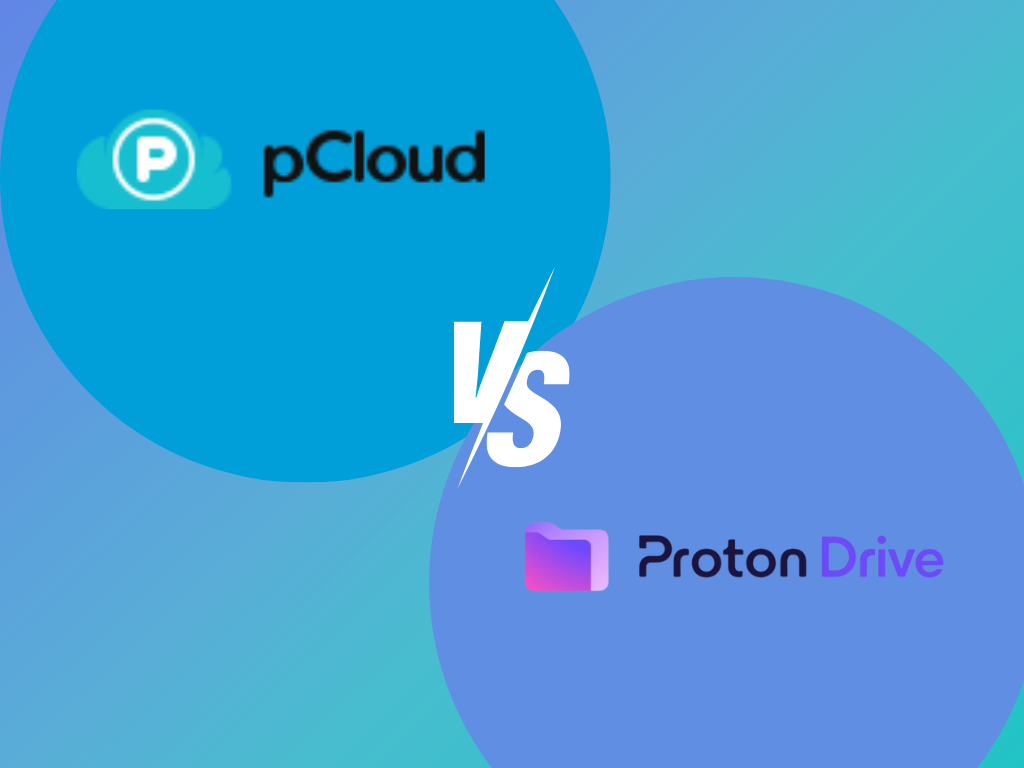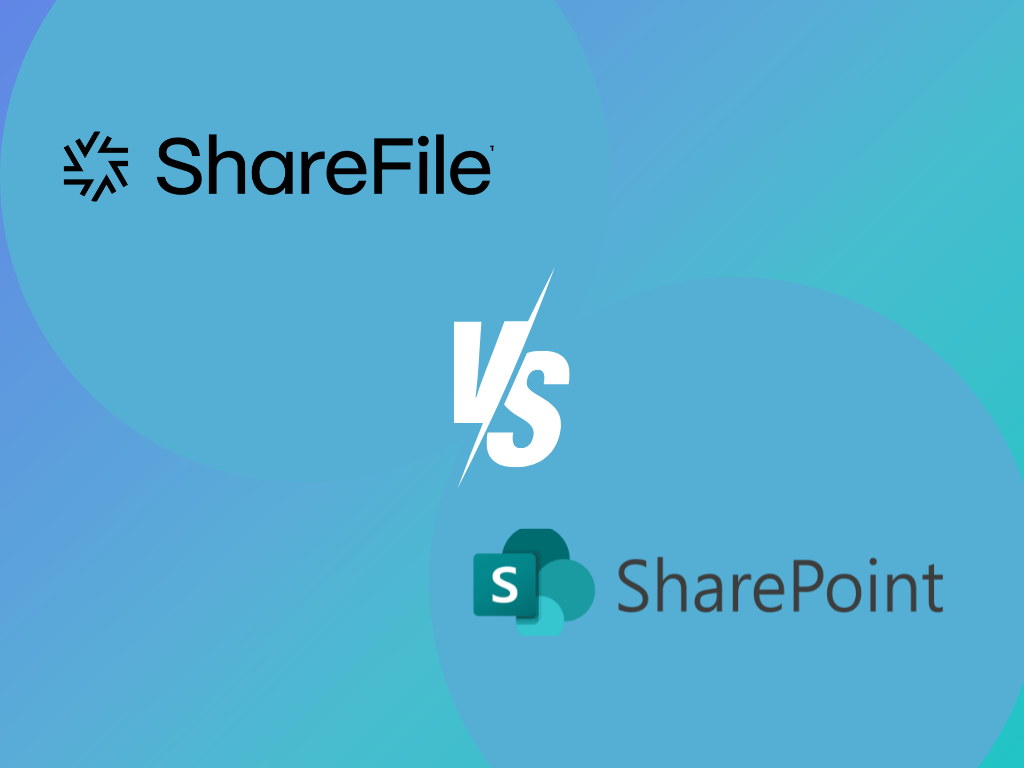The main difference between pCloud and Proton Drive lies in their data security approaches.
pCloud takes pride in its key feature, pCloud Crypto. Meanwhile, Proton Drive boasts about its end-to-end encryption. It means your data gets encrypted on your device and only then sent to Proton’s servers.
Comparing pCloud and Proton Drive
To begin, we prepared a feature table for a quick pCloud and Proton Drive comparison.
| Backup and Recovery | Compliance Standards | User Interface and Ease of Use | Cost | |
| pCloud | Automatic, real-time backup of selected folders, a one-way solution for data preservation, file versioning up to 30 days, and a Rewind feature to recover files from the past 30 days | Focuses on GDPR adherence, offering robust data protection with client-side encryption and compliance with Swiss laws and international security standards like ISO 27001:2013 and ISO 9001:2015 | Intuitive, flexible, and secure | From $4.99 monthly |
| Proton Drive | Automatic, end-to-end encrypted photo backup on Android devices, with easy browsing, secure offline access, and efficient recovery options. | Secure file sharing with Proton and non-Proton users and adherence to data protection laws, ensuring a secure and privacy-compliant cloud storage solution | Modern with options like drag-and-drop for file management. Features themes, including dark mode, file previews, versioning, and syncing across devices | From $3.99 monthly
|
Now, let’s look at each of pCloud and Proton Drive’s features in detail
Security
pCloud emphasizes data security with a tool called pCloud Crypto. It uses encryption on the user’s end to ensure that the content remains unreadable if your data falls into the wrong hands. Additionally, it adds AES-256-bit encryption when you send or receive data, keeping your information safe from unwanted access.
Proton Drive utilizes a method known as end-to-end encryption to safeguard all of your stored data. Your files get encrypted right on your device before being sent to Proton’s servers. It means that the files on their servers are already encoded. So, even if there were a breach (which is unlikely), your data would remain secure.

Collaboration Tools
pCloud includes a range of great teamwork options. You can share files and folders through links. You can decide who can view and edit your content and email directly from the platform.
It’s quick and simple to collaborate with team members. There’s also something special for larger teams: “pCloud for Family.” It permits up to 5 users to use the platform simultaneously.
Proton Drive focuses on straightforward, secure file storage, sharing, and working together. It stays uncomplicated, allowing you to share files through links, a crucial collaboration feature. However, it lacks the option to edit simultaneously or share directly by e-mail.
Reliability and Uptime
When comparing pCloud vs Proton Drive, the reliability and uptime of these cloud storage services are crucial. Users should feel assured that their data is always available to them.
pCloud is well-known for its reliable service. With very few reports of downtime, pCloud consistently delivers high performance.
They take great strides to ensure their services are always available, allowing users to access their documents, photos, and other files easily. In other words, they provide a smooth, hassle-free experience.
As an alternative to pCloud, Proton Drive’s outstanding uptime rates are worth noting. They aim to deliver a seamless, hitch-free user experience—a goal taken to heart.
This Swiss-based company ensures impressive accessibility. It gives users the confidence that their data will be there when needed.
Cost
pCloud’s pricing for cloud storage services includes a free plan with up to 10 GB of storage.
For more storage, there are two main subscription plans:
- Premium plan with 500 GB storage available at $4.99 monthly or $49.99 yearly
- Premium Plus plan offering 2 TB storage at $9.99 per month or $99.99 annually
Additionally, pCloud offers lifetime plans with a one-time payment. It includes $199 for the Premium 500 GB plan and $399 for the Premium Plus 2 TB plan.
Proton Drive offers several pricing plans based on storage capacity. The primary option, Proton Free, provides up to 1 GB of storage for free.
The Drive Plus plan offers 200 GB at $3.99 per month for more storage. The Proton Unlimited plan provides 500 GB for just $9.99 per month.
At the higher end, the Proton Family plan offers 3 TB of storage at $23.99 per month. These plans emphasize Proton Drive’s focus on security and privacy, including end-to-end encryption.
User Interface and Ease of Use
As an alternative to Proton Drive, pCloud has a user-friendly and appealing design. It’s great for those who aren’t too tech-savvy. You can easily find files, folders, and settings. Moving files around involves just dragging and dropping. It’s a very convenient set-up.
Similarly, Proton Drive also offers a neat and user-friendly interface. Its tidy design ensures no clutter and provides a great user experience. It’s super easy to upload files and manage folders efficiently.
Customer Support
If you are exploring pCloud vs Proton Drive, knowing what kind of customer support each cloud service offers is essential.
pCloud, for example, has a very hands-on approach. If you run into trouble, their team is ready to help via email, live chat, or phone. Plus, they have a wealth of helpful material like guides, FAQs, and videos on their website to help you out.
Proton Drive’s support mainly comes through email and a highly detailed knowledge base with FAQs for common and specific problems. However, they don’t offer live chat or phone support right now, which might be a disadvantage if you need immediate assistance.
Customization and Branding
Specific differences are noticeable when considering pCloud vs Proton Drive from the standpoint of customization and branding.
Let’s start with pCloud. They excel in this domain by providing generous options for arranging and customizing your files to match your brand’s identity.
You can tailor the look of your shared download pages to your logo and brand colors. This feature is handy when sharing files with external partners like clients or customers.
On the other hand, Proton Drive prioritizes the user’s privacy over customization elements. Proton Drive doesn’t offer extensive branding or customization options. They are committed to providing simple yet secure cloud storage options, focusing more on security and privacy.

Audit Trails and Reporting Scalability
As a Proton Drive alternative, pCloud boasts powerful audit trail features and logging all activities. It involves tracking file accesses, edits, and deletes.
Every tweak to a file or its permissions is recorded, giving insights into any unexpected changes or suspicious activities. Moreover, its reporting tool can scale to fit any business size. It offers in-depth and meaningful data about storage use, trends, and possible issues.
Proton Drive also has audit trail features that are less detailed than pCloud’s. It records key actions, like file sharing and deletions. It might be enough for small teams, but larger companies want more.
On the plus side, Proton Drive is great at scaling reports. It gives clear reports on file usage, share activities, and storage trends. It is beneficial for businesses that rely on data to make decisions.
Fill: The New Era of Cloud Solutions, Beyond pCloud.
Since cloud storage systems are fast evolving, considering a solution like Fill when comparing pCloud vs Proton Drive is crucial.
Fill stands out from pCloud due to its outstanding speed. Regarding large file uploads and downloads, Fill performed notably faster than pCloud. File transfers, browsing files, searching for documents, and reviewing multimedia files hosted on the platform are also quicker.
Fill is compatible with many standard productivity tools like Hubspot, Zapier, and Google Workspace.
Fill also stands out with its exceptional security. It uses military-grade encryption technology to provide its users with the highest level of data safety.
So, while weighing pCloud vs Proton Drive, don’t forget to throw Fill into the mix.
You can start exploring Fill’s features today by signing up for a 7-day free trial.




